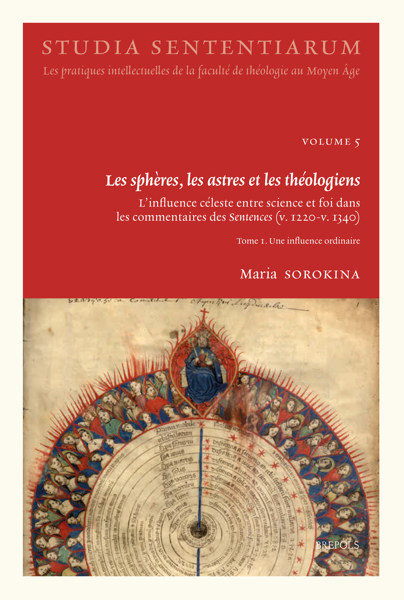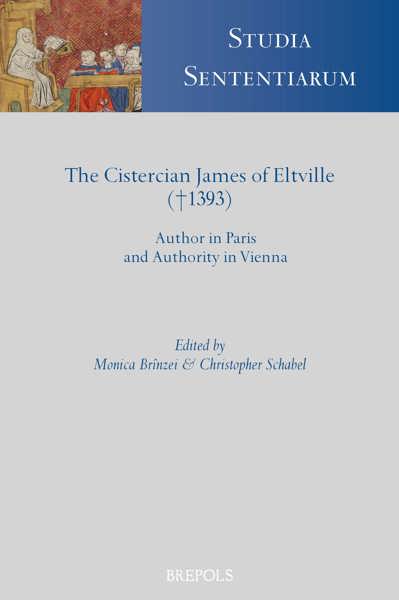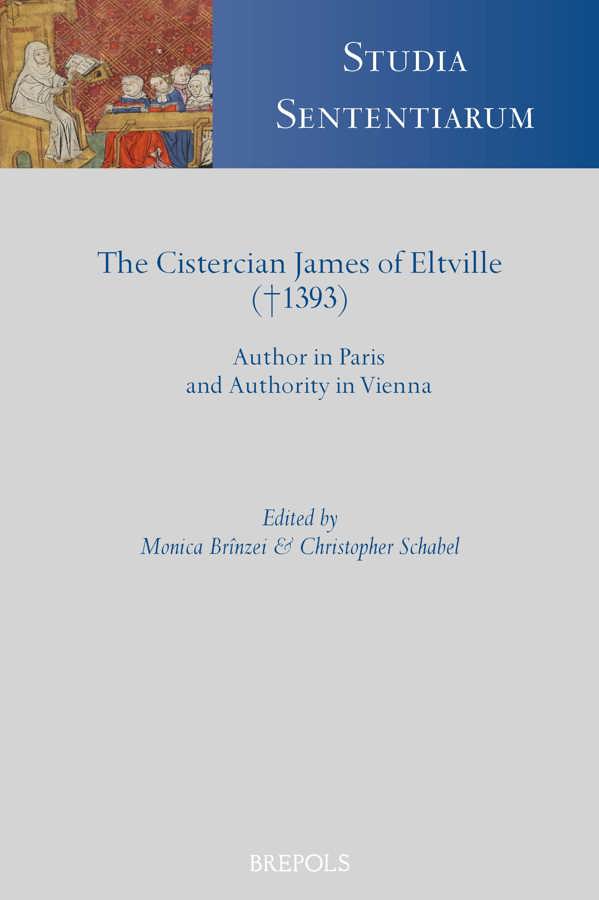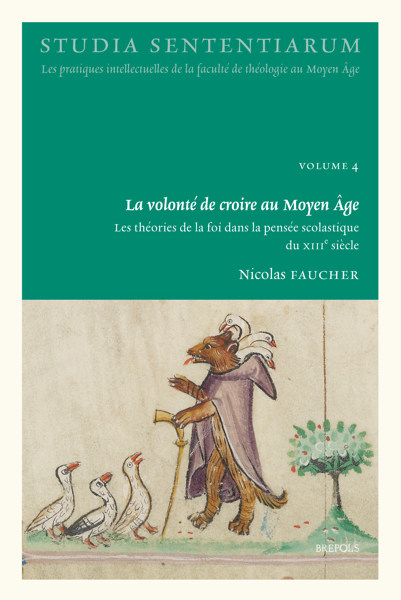
The Cistercian James of Eltville († 1393)
Author in Paris and Authority in Vienna
Monica Brinzei (ed)
- Pages: viii + 501 p.
- Size:156 x 234 mm
- Illustrations:5 b/w, 25 tables b/w.
- Language(s):English
- Publication Year:2019
- € 95,00 EXCL. VAT RETAIL PRICE
- ISBN: 978-2-503-58188-0
- Paperback
- Available
"Insgesamt liegt hier ein Band voller Einsichten vor, die in vielen Punkten das Bild bestätigen, das die jüngere Forschung von der Scholastik der zweiten Hälfte des 14. Jahrhunderts entworfen hat, und es zugleich um neue Aspekte bereichern." (Jan-Hendryk de Boer, in Sehepunkte, 6, 2019)
“The result is a book which can be of great use for those working on medieval texts, on medieval theology and philosophy, on the history of medieval universities and on intellectual history in general.” (Paula Cotoi, in SUBB – Historia, 64 / 1, 2019, p. 171)
« […] c’est un volume d’une grande richesse qui est proposé ici à qui s’intéresse à l’histoire intellectuelle du Moyen Âge tardif. Disons-le tout de suite, les contributions sont toutes d’une excellente qualité, et proposent des analyses des doctrines qui dénotent une lecture directe des textes (souvent à partir des manuscrits) et une bonne connaissance de la littérature secondaire. Les contributions des « jeunes chercheurs » n’ont pas à rougir de la comparaison avec leurs aînés. Chaque étude tient compte des apports des autres, et le volume peut ainsi, à travers une étude de cas, mettre au jour une sorte de portrait croisé de la pratique théologique parisienne à la fin du XIVe siècle. » (C. Grellard, Archives de Philosophie, 2020/3, p. 182-184)
From Paris to Vienna, from author to authority, this book tells the story of the intellectual journey of the Cistercian James of Eltville, who lectured on the Sentences at Paris in 1369-1370. With the support of the ERC-Starting Grant THESIS, a team of young scholars honed their skills in palaeography and immersed themselves in medieval philosophy and theology in the company of Eltville’s 25 surviving manuscripts. The results of their labor, curiosity and passion are gathered in this volume, which describes how Eltville developed the thought of earlier fourteenth-century theologians, such as John of Mirecourt, Gregory of Rimini, Thomas of Strasbourg, Alfonsus Vargas of Toledo, and John Hiltalingen of Basel, and passed on his synthesis to later generations of scholars. It fills a major gap in the current historiography of a relatively neglected period in intellectual history.
Introduction
William Courtenay, James of Eltville, O.Cist., his fellow sententiarii in 1369-70, and his influence on contemporaries
Monica Brinzei, When Theologians play Philosopher in Paris 1369: a lost confrontation between James of Eltville and his socii on the perfection of species and its infinite latitude
Alexandra Anisie, Complexe significabile or res significata? James of Eltville between Chatton and Rimini
Alexander Baumgarten, Scientia sine evidentia. Theology and science at Godescalc of Nepomuk and James of Eltville
Daniel Coma, Reading Anselm through Cistercian glasses: the case-study of Conrad of Ebrach and James of Eltville
Luciana Cioca, Knowing God’s existence according to James of Eltville’s Sentences Commentary I, q. 6
Andrei Marinca, What Does God Know? James of Eltville and his Fellow Cistercians on Divine Knowledge
Ioana Curut, What Does God Know? James of Eltville and his Fellow Cistercians on Divine Knowledge
Alexandra Baneu, To Will or not to Will? James of Eltville on Whether We Must Want the Same Thing as God
Andrew Cuff, James of Eltville on Free Will, Moral Responsibility, and Action Theory: His Sources and Influences
Christopher Schabel, The Filioque doctrine in the Sentences commentary of James of Eltville
Monica Brinzei and Ioana Curut, From Author to authority : James of Eltville legacy in Vienna
Conclusions
Index manuscriptorum
Index authors before 1800
Index authors after 1800




